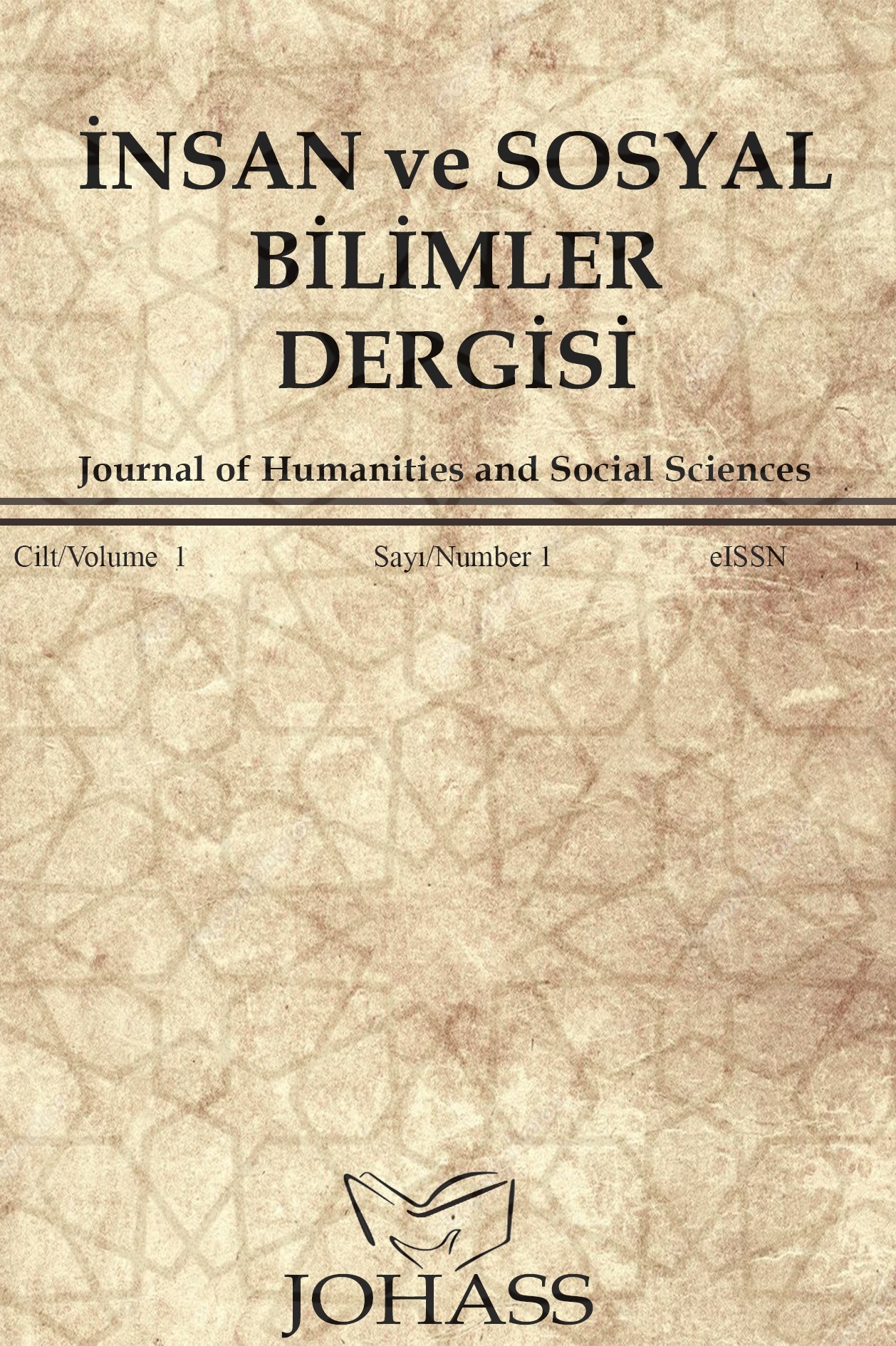E.M. Forster’ın Duygusal Fantezi olarak Kısa Hikâyeleri
Edward dönemi yazarı ve “isteksiz bir modernist” olarak E.M. Forster büyük romanların yanı sıra birçok hikâye de kaleme aldı. “Bir Paniğin Öyküsü”, “Siren’in Öyküsü”, ve “Cennet Dolmuşu” başlıklı seçilen üç kısa öyküde yazar arzu duygusuna dayalı fantezi kurgudan faydalanır. Bu çalışmanın amacı Forster’in “başka bir dünyaya veya kayıp bir dünyaya özlem” ve/veya “kendi dünyamızı büyülenmiş bulma” özellikleriyle duygusal fantezilerini nasıl inşa ettiğini göstermektir. Mitolojik figürler, pastoral imgeler, güzellik ve bireycilik gibi temel motifler de tartışmanın bir parçasıdır. Todorov’un fantezi teorisini ve Manlove’ın fantezi kurguya ilişkin argümanlarını tartışma için bir sıçrama tahtası olarak kullanan bu çalışma Forster’ın seçilen kısa öykülerinin arzu tarafından şekillenen duygusal fantezilerini olmasına rağmen, arzu duygusunun bir doyuma yol açmadığını ileri sürmektedir. Diğer bir deyişle, hikâyelerin şekillenmesine katkıda bulunan duygu sonuçsuz ve kesintilidir.
Anahtar Kelimeler:
Duygusal fantezi, E.M. Forster, arzu, kısa hikâye
E.M. Forster’s Short Stories as Emotive Fantasies
As and Edwardian author and a ‘reluctant modernist’ E.M. Forster penned several short stories as well as great novels. In the three selected short stories titled “The Story of a Panic”, “The Story of a Siren”, and “The Celestial Omnibus”, Forster makes use of fantasy fiction based on the feeling of desire. The aim of this paper is to demonstrate how Forster’s emotive fantasies are constructed through features of “longing for another world or a lost world” and/or “finding our own world enchanted”. Some of the underlying motifs such as mythological figures, pastoral images, beauty and individualism are also part of the discussion. Using the theory of Todorov’s fantasy and Manlove’s arguments regarding fantasy fiction as a springboard for discussion, this study argues that even though the selected short stories by Forster are shaped by desire as emotive fantasies, the feeling of desire does not lead to a satisfaction; in other words, desire is an inconlusive and discontinuous feeling which contributes to the formation of the stories.
Keywords:
Emotive fantasy, E.M.Forster, desire, short story,
___
- Cavaliero, G. (1979). A Reading of E.M. Forster. London: MacMillan Press.
- Crews, F. (1962). E.M. Forster: The Perils of Humanism. Princeton: Princeton University Press.
- Forster, E.M. (1988). The Celestial Omnibus. London: Snowbooks Press.
- Head, D. (2007). Forster and the Short Story. D. Bradshaw (Ed.), In The Cambridge Companion to Forster (p. 77-91). Cambridge: Cambridge University Press.
- Herz, J.S. (1988). The Short Narratives of E.M. Forster. London: MacMillan Press.
- Jackson, R. (1981). Fantasy: The Literature of Subversion. London and New York: Routledge.
- Lane, C. (2007). Forsterian Sexuality. D. Bradshaw (Ed.), In The Cambridge Companion to Forster (p. 104-119). Cambridge: Cambridge University Press.
- Manlove, C. (1999). The Fantasy Literature of England. New York: Palgrave.
- Mathews, R. (2002). Fantasy: The Liberation of Imagination. New York & London: Routledge.
- Medalie, D. (2002). E.M. Forster’s Modernism. New York: Palgrave.
- Page, N. (1987). E.M. Forster. London: MacMillan Press.
- Todorov, T. (1973). The Fantastic. Richard Howard (Trans.). London: The Press of Case Western Reserve University.
- ISSN: 2667-4343
- Yayın Aralığı: Yılda 2 Sayı
- Başlangıç: 2018
- Yayıncı: Bilgiçağı Eğitim Danışmanlık ve Yayıncılık Sanayi Ticaret Limited Şirketi
Sayıdaki Diğer Makaleler
E.M. Forster’ın Duygusal Fantezi olarak Kısa Hikâyeleri
Muhammed Yasin SAĞLAM, Yasin ŞEHİTOĞLU
Web 2.0 Aracı ile Desteklenen Çevrim İçi Fen Bilimleri Öğretimi: Sanal Müze Etkinliği
Kevser ARSLAN, Asli GÖRGÜLÜ ARI
Koruma Sorumluluğu Kavramı Hakkında Kısa Bir İnceleme
XVI. ve XIX. Yüzyılda Seyahatnamelerdeki Gravürlere Yansıyan İstanbul Camileri
Eskiçağ Tarihini Anlamada Arkeoloji Bilimi: Doğuşu ve Gelişimi
Erken Evlilik ile İlgili Lisansüstü Tezlerin İncelenmesi
'Emsallere Uygunluk İlkesi' ve 21. Yüzyılda Sanat ve Kültür Sektöründeki Rolü
J. G. Ballard’ın “The Ultimate City” Eserinde Ekotopya ve Petrokültür
Nefret Suçlarının Önlenmesinde Çokkültürcü Sosyal Hizmetin Önemi
